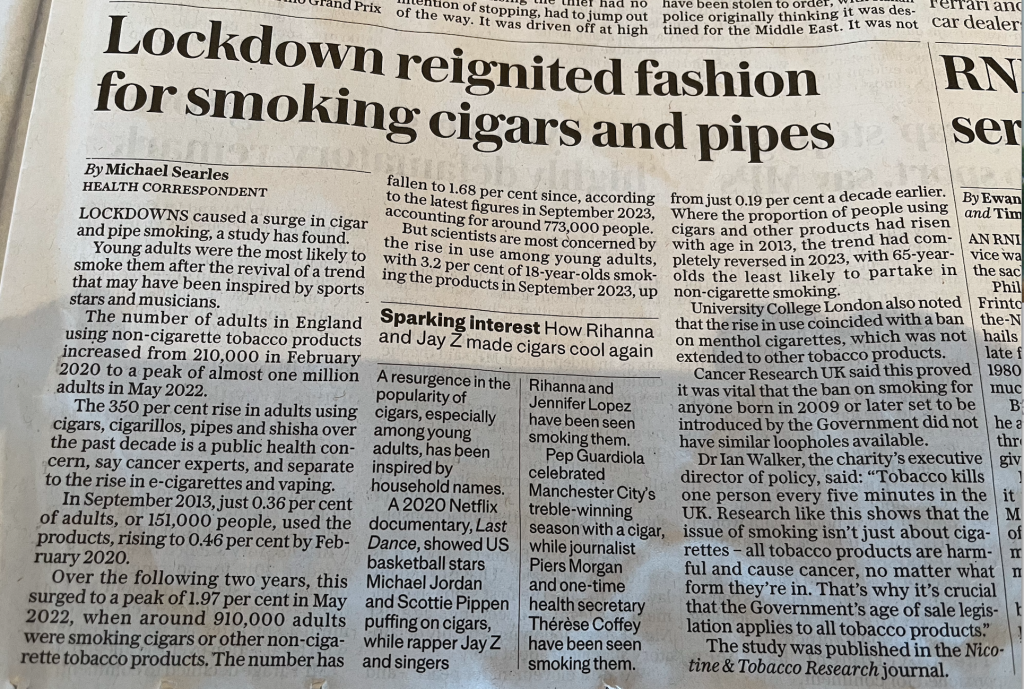
About 20 years ago I had a conversation with the Marketing Director of a tobacco company in Asia Pacific. I was trying to sell him on the idea of creating some scenarios for the future of the industry. He liked the idea and ran it up the chain of command. The response from above was “no point, there’s only one future scenario” (that the industry would disappear, and nobody would smoke). This was before the widespread introduction of e-cigarettes and vaping. But my mind at the time was somewhere else – and to some extent still is. The question for me then – as it now – is why do people smoke? I still don’t know, because the project never materialised, but my suspicion is it’s initially to do with rebellion and then perhaps relaxation or anxiety. If this were to be true then one might want to look at the deep drivers of rebellion, relaxation and especially anxiety. If, for example, there was a broader scenario where people were more anxious, this might drive a renaissance of smoking (dependent upon availability and legal restrictions). My serious point here is never to say never. People get the future wrong for numerous reasons, but one of the key reasons is extrapolating from current trends, which often bend or change direction given enough time.

